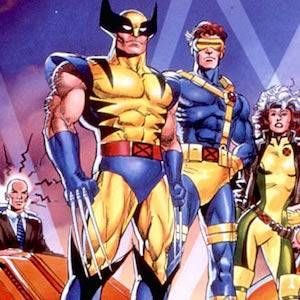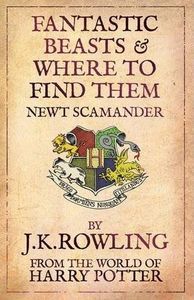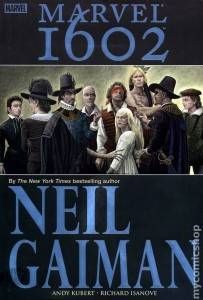
Crossing the Streams: Mutants and Muggles

Something interesting, though, was all the footnotes scattered through them. You think, for example, that you’re just getting an A-to-Z list of creatures in Fantastic Beasts and Where to Find Them, but there are so many little notes, you wind up with what feels like a complete history of magic. You realize how many stories there are in this world that J.K. Rowling hasn’t gotten to yet.
The fact in question today is that I learned that in 1692, facing a growing inability to live peacefully in vicinity of Muggles, the wizarding world decided to secrete itself away from prying eyes and unruly, witch-hunting mobs forever. As we know from the books and movies, the Muggle leaders of the world seem to know about the wizarding world…but that’s about it. Everyone else is kept in the dark, for their safety and the safety of the magical world. The Muggles simply wouldn’t understand.
It was fascinating stuff, story-wise, but there isn’t a whole lot about it, save for the footnotes and bits. Still, it left me imagining stories about it. What was it like, when the wizards hid themselves away? What would a Harry Potter wizard story be like, set in the 1600s?
And then I realized, of course, that we have that.

Marvel: 1602 imagined the X-Men, and general Marvel universe characters set in a medieval period, scattered across America as well as the courts and streets of England. Mostly, the characters have their powers intact, but they’ve either been hidden away, or enslaved for their powers by people much stronger than them, or have just pretended the powers themselves don’t exist. One can quickly see why, reading 1602 and imagining wizards in there instead, they might make some lands unplottable and hide their worlds and lives away.
X-Men in general is the counterpart, really. I was re-watching those movies as I was reading the books, so they were easy wires to cross…but they were exciting ones, for me, once I did. There are so many parallels between Harry Potter’s world and the Mutant’s world, their difficulties with coming to terms with their own powers, their own differences from the rest of the world, their abilities to co-exist with their own kind – who do not all agree on what these powers should be used for – and with the larger world, which is frightened of them.
Another interesting question this raised, for me is, imagine if in the more modern era the wizarding world decided to “come out” as it were, to the Muggle population? One could imagine it. Younger wizards of Harry’s generation perhaps maturing and saying “we cannot do this alone.” Would it work? We only have to see all the places in the long X-Men history that it hasn’t worked to imagine that it wouldn’t work at all. Hell, go watch X-Men 2 and imagine those troops trying to swarm Hogwarts instead of Xavier’s Mansion, quietly stealing away kids from Gryffindor and Ravenclaw and so forth. It seems a doomed prospect, but I remain optimistic in much the way Xavier does that eventually, a harmony could be achieved.
Mostly, I find it fascinating to look at parallels between Harry Potter and X-Men. For example, one can easily see that Albus Dumbledore and Charles Xavier are counterparts. They’re inspiring leaders who bring together all our heroes and help them achieve great things…but who are, themselves, troubling and dangerous individuals who are not at all what they first appear, and who occasionally seem closer to the villains than to our noble heroes. On another front, an interesting thing to me is that there isn’t the obvious counterpart with Voldemort and Magneto. One is maniacal and one is more misguided than anything. Voldemort and Apocalypse, perhaps? I’m not sure on that one.
(Who is Wolverine in the Harry Potter world? Look we aren’t going to match them up character by character here.)
(But it’s totally Mad-Eye Moody.)
So: for a fun creative thought exercise, go forth and absorb some Harry Potter and some X-Men, be it comics or be it movies. They all work pretty well together. But as you do so, ask yourself how stuff would work and answer it with the opposite body of work. That’s what I did with what would happen if the wizarding world revealed itself and it’s been amazing to think about. It’s all there, and I bet it’s just the tip of the iceberg.

Ten points to Gryffindor…bub.

















